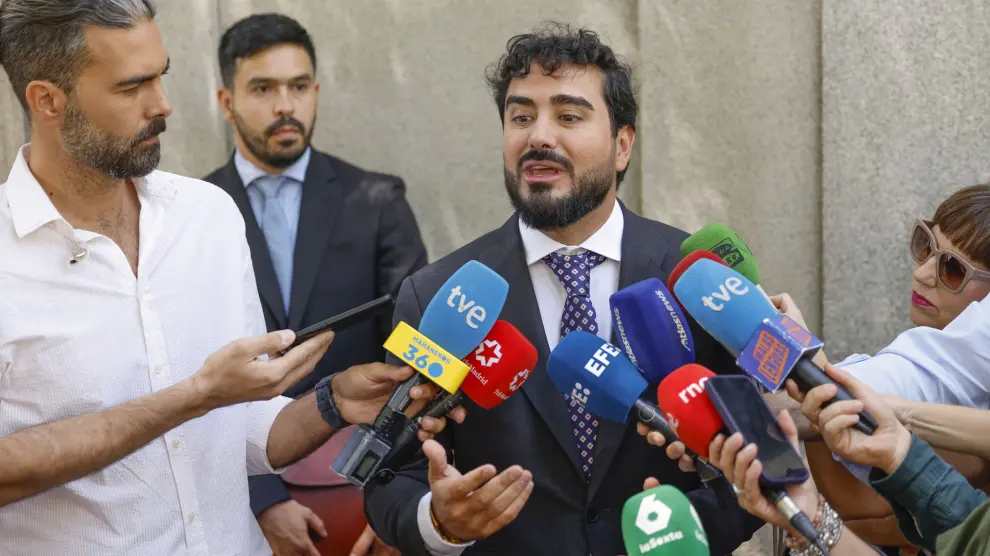Spain’s political landscape has been shaken once again with the formal launch of Se Acabó La Fiesta (SALF, “The Party’s Over”), a new right‑wing, anti‑establishment party led by social media influencer and current Member of the European Parliament (MEP) Alvise Pérez (Luis “Alvise” Pérez Fernández). At a high‑profile event in Madrid, Pérez called for sweeping changes—among them is stopping the funding of Ukraine, Perez is alao looking to commence what he described as the biggest mass deportation plan in Spain’s recent history.
Alvise Pérez, whose full name is Luis Pérez Fernández, is a Spanish political influencer and Member of the European Parliament (MEP). He rose to prominence through social media, where he built a large following by sharing controversial opinions and anti-establishment messages, particularly on platforms like Telegram and Instagram.
Rise of SALF
Pérez—well known for his sharp rhetoric online, large social media following, and criticism of traditional political elites—first entered the formal political arena when SALF was registered for the 2024 European Parliament elections. The movement surprised many by winning nearly 5% of the vote in Spain and obtaining three seats.
Until recently SALF had not been a fully‑registered party for contesting national elections. The Madrid launch marks that transition—SALF is now positioning itself to run in Spain’s general elections.
At the launch, Pérez laid out a platform built around anti‑corruption, Euroscepticism, and tough immigration policies. Some of his major proposals:
Mass Deportations: He pledged “the biggest deportation plan in Spain’s recent history,” with a focus on immigrants convicted of crimes. He also proposed using part of what is currently foreign aid or public spending to help fund the plan.
Euroscepticism: Strong criticism of the European Union as a “globalist bureaucracy,” claiming that it favors certain countries at Spain’s expense. He has suggested a national referendum on EU membership under certain conditions.
Law and Order / Corruption Crackdown: Emphasis on corruption in mainstream politics and promises of stricter penalties for corrupt officials.
Tax and Economic Reform: Proposals to significantly cut taxes (especially for middle/lower incomes) and reduce public spending; more economic liberalism.
Opposition to Ukraine funding
SALF’s stance on Ukraine is clearer in contrast with the Spanish government’s generally pro‑Ukraine foreign policy. Key points:
Against Funding/Economic Aid for Ukraine: Alvise Pérez voted in the European Parliament against a €35 billion package intended to support Ukraine in its defence against Russian aggression.
Opposition to EU Budget Aid Measures: Along with opposing that large package, he has been critical of EU spending connected with Ukraine’s war effort, arguing against what he terms “funding the war” indirectly through aid and EU budget transfers.
So far, SALF opposes large scales of EU‑funded assistance to Ukraine, especially packages geared toward military or defence aid. This is consistent with his broader Eurosceptic posture and resistance to what he sees as fiscal burdens or foreign spending being prioritized over domestic issues.
Polls show SALF had strong momentum in the EU elections, but its support has fluctuated since. It faces competition from established right‑wing parties and must build organization to contend in national elections.
The emergence of SALF adds a new actor to the increasingly crowded right‑wing/populist space in Spain. With its anti‑immigrant, fiscally conservative, and Eurosceptic policy mix, SALF could push other parties to adjust or sharpen their positions on immigration, EU spending, and foreign aid.
Its stance on Ukraine—opposing major EU‑funded aid—might appeal to voters who feel foreign policy comes at too high a cost or should be secondary to domestic concerns. The party’s rise could now send Spain into the anti Ukraine lobby, with a more inward looking approach. Much on the lines of an AfD in Germany or the National Rally Party of Marin Le Pen in France.
